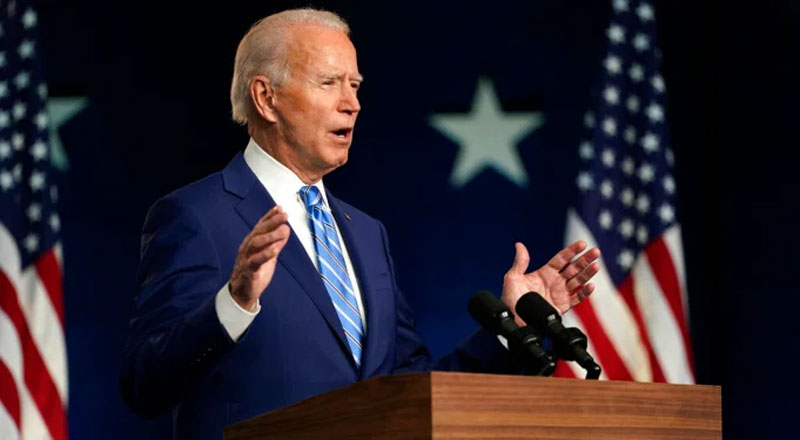President Joe Biden signed a sweeping executive order on Friday intended to increase competition within the nation’s economy and to limit corporate dominance, factors the White House says have led to higher prices and fewer choices for consumers while dampening pay and restricting the freedom to change jobs.
It is true that, the technology companies has formed the law as per their conveniences and business profitability by evading the taxes. With this the Trillion of money is saved in the countries into Tax heavens. There were 10 countries are notified as the Tax heavens and the corporates like Apple,Nike, Goldman Sachs, Microsoft, IBM, General Electric, Pfizer, Exxon Mobil, Chevron, Walmart have their accounts. There are more then 50 companies earned over $4.2 trillion in profits globally, but they used offshore tax havens to lower their effective overall tax rate to just 25.9%, which was well below the U.S. statutory rate of 35% and even lower than the average levels paid in other developed countries.
A tax haven, or offshore financial center, is any country or jurisdiction that offers minimal tax liability to foreign individuals and businesses. Tax havens do not require businesses to operate out of their country or the individuals to reside in their country to receive tax benefits. With this neither parent companies in US,Europe and their A subsidiary company is a business that is owned, the company is referred to as a parent company operating in different company stores profit in the chain of subsidiary company in different country and it gets stored finally in the Tax free heavens, with this parent company in the country of origin loses the tax and revenue. Sources said, Apple has few trillion dollar cash in reserve, but the money is not in USA but it in the different country or may be in the Tax heavens.
From last couple of years back Apple announced it’ll bring back hundreds of billions of dollars from overseas to fund investment in the U.S. by using the new 15.5 percent repatriation tax rate, the $38 billion tax payment disclosed by Apple means they are planning a $245 billion repatriation.
Due to this many countries loses the tax and revenue with the existing law and norms. Now many countries are in the favour to change the law .
The administration encouraged federal agencies to take a wide range of actions, such as more closely scrutinizing the tech industry, cracking down on high fees charged by ocean shippers and allowing hearing aids to be sold over the counter.
What we’ve seen over the past few decades is less competition and more concentration that holds our economy back,, Biden said in the White House on Friday, citing the agriculture, technology and pharmaceutical industries. “Rather than competing for consumers, they are consuming their competitors. Rather than competing for workers, they’re finding ways to gain the upper hand on labor.
But Biden may find it difficult to address the decline in competition across diverse parts of the economy – including Silicon Valley, Wall Street, chain restaurants and large hospital networks – solely through executive action. Experts warn that in many areas, Biden will need to work with Congress to change federal laws if he hopes to have more success than former President Donald Trump, who also issued competition-focused executive orders and who saw limited results from them.
Many of the agencies, such as the Federal Trade Commission and the Federal Communications Commission, that were mentioned in the Friday order are independent, meaning the White House can only encourage them, not direct them, to take specific steps. But in statements Friday, those agencies largely embraced the proposals and promised to take action.
The order includes 72 provisions stretching across disparate sectors of the economy. One part of the order tells the federal agencies that approve mergers that they should update their guidance for vetting deals to better capture technology companies’ business models. Another asks the FCC to reinstate so-called net-neutrality rules for broadband providers. Yet another asks the FTC to stop manufacturers from blocking farmers from repairing their tractors on their own.
Another focus are the companies that move people and goods around the world. The order encourages new rules governing airline fees, for example. The airline industry consolidated substantially in the 2000s and early 2010s, with a series of mergers and acquisitions creating four large carriers that now serve almost two-thirds of all American passengers. The order also asks the Federal Maritime Commission, an independent agency, to aggressively enforce law against companies that charge exporters high prices to transport their products by sea.
To lead the FTC, he tapped Khan, who worked on a House antitrust investigation into Amazon, Apple, Facebook and Google, and earlier in her career wrote critically about concentration in other industries, including candy manufacturing and agriculture.
House lawmakers have advanced a handful of proposals to strengthen the agencies’ hands when it comes to Big Tech, but those bills are expected to face fierce resistance. Many of the measures in the executive order don’t necessarily need an act of Congress to broaden the agencies’ abilities. In many cases, regulators have held back on enforcing existing laws and creating new rules, people familiar with the White House’s thinking said.
One target of the executive order is mergers where big tech companies buy small businesses with the potential to become fierce competitors, snuffing out rivals before they get off the ground. The directives encourage the agencies to revisit the guidelines to assess proposed deals, including when a company is buying a young competitor or a major cache of data that could help it dominate.
The fact is on the signed agreement in the WTO. Now many countries are opposing to the agreement. Several countries simultaneously agreed to initiate work on identifying the directions of a tentative negotiating framework on e-commerce.
Since the Ministerial, the WTO has received a large number of proposals from various members but has not yet been able to formalise a centralised negotiating agenda
China’s presence in the group of members moving on informal talks significantly enhances the global pressure in proceeding on them. By joining the US, EU and Japan in the chorus for global e-commerce rules, China signals its intent of ‘playing’ by the rules of global digital trade. This could be a game-changer for digital trade talks.
However, many countries are still unwilling to endorse global e-commerce talks. The WTO is desperately seeking a new lease of life and the e-commerce talks might just be what it is looking for.





